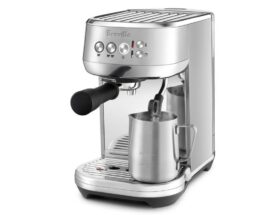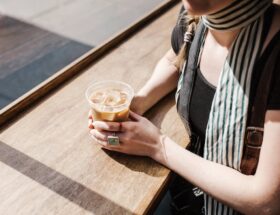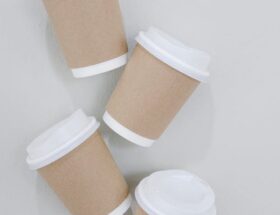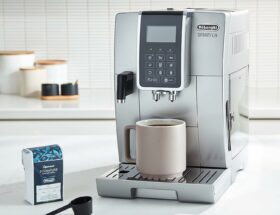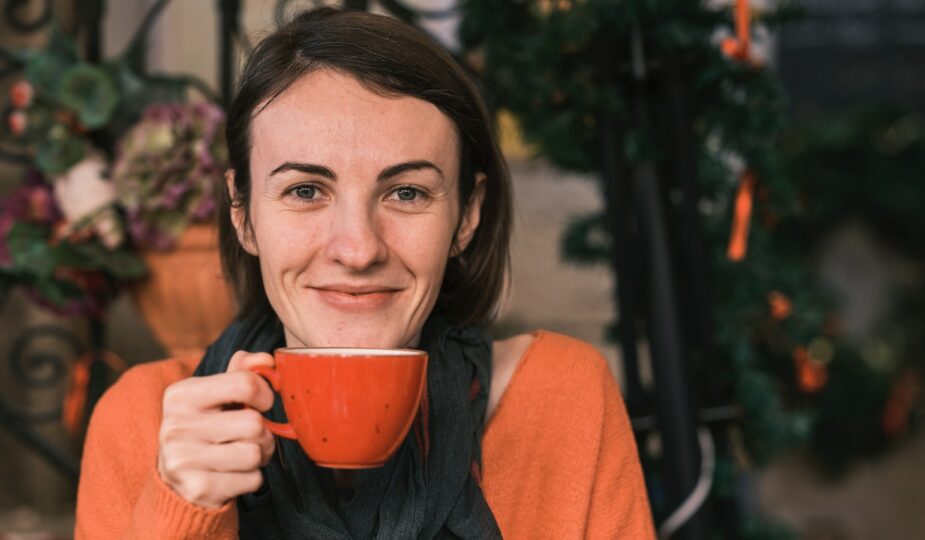
Which Coffee has the Least Caffeine?
The captivating aroma and rich full-bodied taste of coffee truly makes it a beguiling beverage. But amidst this alluring love affair with coffee, some of us may be looking to decrease our caffeine intake, without sacrificing the charming taste and warmth of our beloved cup of joe. If your quest is similar, fear not, because today’s blog will explore which decaffeinated coffee boasts the least caffeine. Yes, we are delving deep into the decaf domain and unravelling the mysteries of low-caffeine coffees. Whether it’s due to health reasons, sleep habits or simply personal preference, we’re here to help navigate you through this often-overlooked aspect of coffee. So, stick around and get ready to sip on some enlightening information about which decaf coffee has the least caffeine! Transitioning smoothly into the low-caffeine world, let’s begin our exploration into the world of ‘lesser-caffeine’ caffeine!
Table of Contents
So, Which Decaffeinated Coffee has the Least Caffeine?
According to the National Coffee Association, a serving of decaf coffee typically contains 2 mg of caffeine in comparison to its regular counterpart which boasts about 95 mg of caffeine. Such a striking difference already depicts the magnitude of caffeine reduction in decaf coffees!
However, navigating through the myriad of coffee varieties and brands, it’s important to note that the caffeine content in decaf coffee may oscillate. An average 8-ounce (236-ml) cup of decaf coffee generally contains up to 7 mg of caffeine. Contrastingly, the same serving of regular coffee possesses a caffeine range of 70–140 mg. The variance is indeed considerable!
Transitioning towards specifics, you might wonder about the caffeine content in your favorite brand of decaf coffee. Perhaps you have a favored brand that fits your taste perfectly, and you wish to know its exact caffeine measure. Well, dear coffee lovers, this exploration is catered for you as we delve into how different brands stand the test of caffeine content. So, stay tuned as we brew more caffeinated insights especially for you!
A Comparative Look at Caffeine Levels in Popular Coffee Brands
As we steer our coffee talk into more detailed waters, it’s essential to grasp the key comparisons between decaf and regular coffee. To begin with, the caffeine content is the most noticeable difference. A typical cup of decaf coffee contains about 2 mg of caffeine, setting it far apart from a typical cup of regular coffee, which packs a punch with roughly 95 mg of caffeine, according to the National Coffee Association.
Nevertheless, the caffeine content in decaf can vary depending on the specific brand and type of coffee. To provide some perspective, an average 8-ounce (236-ml) cup of decaf coffee can contain up to 7 mg of caffeine. By comparison, a similar-sized cup of regular coffee proffers a substantial 70–140 mg of caffeine.
To give you a more specific idea, let’s take a glance at some of the popular coffee brands. Dunkin Donuts’ decaf, for instance, contains about 7-18 mg of caffeine, while McCafe ranges around 8-14 mg. In contrast, a medium coffee from Starbucks has roughly 15-30 mg of caffeine. Sitting at the lower end of the spectrum, a K-cup or Caribou’s light roast offer between 2-4 and 4-6 mg of caffeine, respectively.
To conclude, while decaf coffee still contains some caffeine, the amount is considerably less than in regular coffee. As you can see, each brand has a different caffeine level in their decaf cup, so it’s always helpful to check this according to your preferences and needs. It’s time to make more informed coffee choices, so go ahead and indulge in the wonderful world of decadent decaf!
Which Decaffeinated Coffee has the Least Caffeine?
| Brand | Caffeine content (mg) per medium brewed coffee | Key characteristics |
|---|---|---|
| Starbucks | 15-30 | A blend of Latin American and Asia/Pacific coffees with a smooth and balanced flavor |
| Dunkin Donuts | 7-18 | A medium roast with a rich and smooth taste that is easy to drink |
| McCafe | 8-14 | A medium-dark roast with a smooth and mellow flavor that is made from 100% Arabica beans |
| K-cup | 2-4 | A variety of flavors and roasts that are compatible with Keurig brewers and are certified Orthodox Union Kosher |
| Tim Hortons | 6-15 | A medium roast with a smooth and satisfying flavor that is made from 100% Arabica beans |
| Caribou | 4-6 | A light roast with a bright and fruity flavor that is Rainforest Alliance Certified and uses the Swiss Water Process |
Want to Learn More? More Caffeine or Healthier Coffee?
We understand how intoxicating the world of coffee can be, and there’s always more to learn and explore. If your interest is piqued, and you’re eager to dive deeper into the diverse universe of coffee, we’ve got just the brew for you!
For eager enthusiasts seeking to unravel which coffee has the most caffeine, take a sip from this well-steeped article: Which Coffee Has the Most Caffeine?
Fancy learning how your favorite drink fares on the health scale? Brew fresh insights from Which Coffee is the Healthiest? This piece will surely fill your cup with a wealth of knowledge about the nutritive benefits of your cherished coffee.
Stay curious, coffee lovers, and keep brewing fresh tangents for your coffee intellect! Keep exploring, learning, and sharing your coffee adventures with us. Thank you for allowing us to be part of your coffee journey!
Wrap Up
In conclusion, while our pursuit of decaf coffee highlights the subtleties and intricacies of caffeine content, it also fortifies our shared passion for this invigorating brew. Remember, the joy of coffee extends beyond its caffeine content, embracing its rich aroma, delicate flavor profiles, and the warmth it brings to our daily routines.
Learning about the world of decaffeinated coffee might have opened up a plethora of delightful options for those wanting to reduce caffeine intake without compromising on the cherished coffee experience. Whether it’s the medium-dark roast of McCafe or the diverse K-cup flavors, you now have the stellar advantage of knowledge in your coffee selection process.
Now, it’s time for your thoughts to brew! We’d love to know your experiences with decaf coffee. Have you found a brand that strikes the perfect balance for your taste buds and caffeine needs? Or are you eager to try the ones we have spotlighted in this blog? Your insights and tastes might just be the helping hand someone needs to navigate their way through the engaging world of decaf coffee.
So, fellow coffee lovers, let’s keep this conversation percolating! Share your thoughts, experiences, and preferences in the comments section below. Let’s continue our journey of coffee exploration together – one brew at a time!





